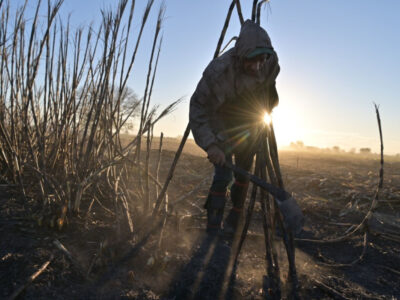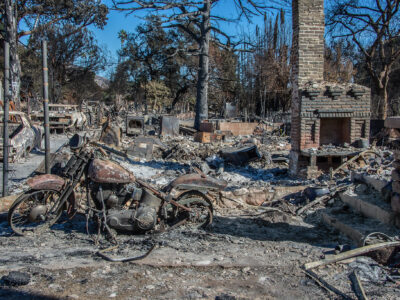This is the thirteenth of a continuing series of essays and interviews from Earth Institute scientists on the prospects for a global climate-change treaty. Check with us daily for news and perspectives, and to make comments, as events unfold throughout the Copenhagen meetings.
In the lexicon of sociologists, a social dilemma is when individual rationality leads to collective irrationality. With climate change, we are experiencing a very major and extraordinarily complicated social dilemma.
On a social level, the benefit that many human individuals are getting from consuming energy is being pitted against humanity in general, because the impacts of that usage seem remote both geographically and in time. The energy we consume is invisible to the naked eye, as are carbon dioxide molecules and other greenhouse gases, and this helps us to ignore the problem. The large group of players leads to anonymity for all, allowing individuals a free ride on others’ sacrifices.
This is a huge problem; how do we motivate changes in individual behavior to address a collective problem? If I conserve energy and everyone else conserves, our environment wins. Unfortunately, the more likely scenario is that I assume others will not conserve, so neither will I—an example of what ecologist Garrett Hardin dubbed the “tragedy of the commons.” Hardin, who died in 2003, first described this phenomenon in the 1960s, when problems like toxic waste and booming population were more discussed; but the concept applies to climate. He said the only way to avert the tragedy was by “coercive laws and taxing devices” that make it cheaper for, say, polluters to treat pollutants rather than to discharge them into the environment.
That is why setting binding targets in Copenhagen is so important. But what takes place in Copenhagen is more complex than what happens among us as individuals. In Copenhagen, the players are not anonymous nor equal, and not everything is in common.
Certain powers, including the United States, China, India, Russia, Brazil, Russia and the European Union have far more sway over the final outcome than others. Without commitments from them, any agreement will be meaningless, though for widely varying reasons. Here is why: the United States alone is responsible for about 25% of the greenhouse gases in the atmosphere; China and India are fast growing economies that want to emulate U.S. lifestyles; Russia is one of the largest exporters of energy and thus of emissions; and Brazil has the largest emissions sponge in the world, the forested Amazon basin.
Then, there are developing countries with a lot hanging on the outcome, but relatively little power over it. These nations are fighting to gain traction on issues that would make an agreement easier for them. One concern is that the most vulnerable among them be compensated for the effects of climate change. Bangladesh tops the list for the global climate risk index; it has already asked for 15% of any climate fund created.
I am an Indian who grew up in Dubai, United Arab Emirates—a place that adds to the confusion. Contrary to popular imagination, Dubai’s wealth does not rest on oil; Abu Dhabi, another emirate, is the oil-rich one, with over 90% of the country’s reserves. So in recent years Dubai has tried to carve out its own identity by styling itself the Las Vegas of the Middle East. It has remade itself into a hub of tourism, banking and shopping. I lived there before most of the development happened. Today, Dubai is unrecognizable to me; there are huge shopping malls (some with ski resorts inside them), artificial islands in the shapes of palm trees, and cranes everywhere. In the process, Dubai has gained a world title: largest ecological footprint per capita.
How do we establish realistic targets for nations whose interests and economies differ so dramatically? The bubble of Dubai’s development recently burst, causing some upset in the global financial markets. Will it be possible for cities like this to remodel themselves using the rubric of sustainable development? How will a possible treaty in Copenhagen help developing countries like China and India to follow a sustainable path? The events of this week and next may provide possible solutions to both the individual-level and country-level social dilemmas. But the way is not yet clear.
Shahzeen Z. Attari is an Earth Institute postdoctoral fellow at the Center for Research on Environmental Decisions.




